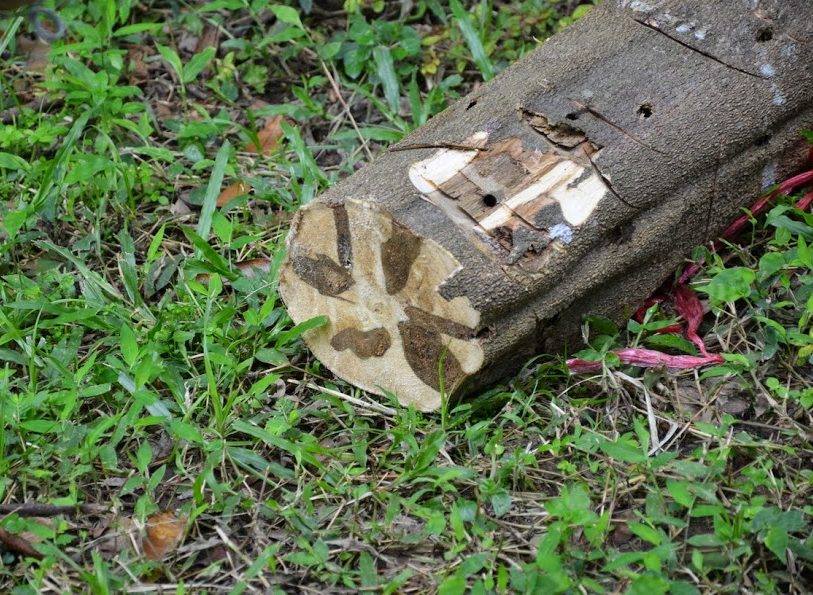Police, DENR nab 5 Vietnamese with endangered tree product in Butuan
Credit to Author: clopez| Date: Fri, 26 Jul 2019 09:09:11 +0000
BUTUAN CITY — Five Vietnamese nationals were arrested in separate operations here after they were caught transporting several kilos of Agarwood, an endangered and highly coveted tree species.
The Vietnamese, who were caught in joint operations by the Police Regional Office in Caraga (PRO-13) and the region’s Department of Environment and Natural Resources (DENR-13), were in possession of over P1 million worth of Agarwood and around P5.8 million in cash.
The five foreigners, who were presented by PRO-13 to the media on Friday, were identified as NguyÊn Thi Chung, 40, DiÊl Thi BÍch HÒa, 45, and VŪ VÃn Trang, 34.
All of them were arrested close to midnight at the Grand Palace Hotel in Purok 1, Barangay Imadejas, Butuan City on Friday, July 25.
Also arrested were Tu Quoc Vu, 35, and To Tien Phat, 22, who were intercepted around 5 a.m. Saturday, July 26, at the Butuan airport during the inspection of their bags and belongings.
The first three men were arrested after they entered the hotel and were caught with two kilos of Agarwood and P1.8 million in cash, said Police Brigadier General Gilberto DC Cruz, PR0-13 chief.
A follow-up operation led to the arrest of the two other Vietnamese nationals at the airport who were carrying around 20 kilos of chopped up pieces of Agarwood and cash estimated to be around P4 million, added Cruz.
“Right now they will be charged in violation of the Revised Forestry Code of the Philippines under Presidential Decree 705, as amended by RA 7161 and according to the DENR personnel RA 9147 or Wildlife Resources Conservation and Protection Act for the trade and transport of the said species,” he said.
Cruz believed that this is the first apprehension of its kind in Caraga Region but suspected that the trade had been going on for some time in Surigao del Sur, Agusan del Sur, and other parts of the region.
Jewel D. Padullon, Enforcer IV of DENR, said Agarwood, locally known as Palisan, grows in parts of Surigao and Agusan provinces, but their exact location is still being looked into since this species is rarely seen.
Agarwood is highly sought after since it is used for incense, perfumes, and for medicinal products, he said.
“We have been receiving reports in the past of the on-going trading of the said species. We have three species that are known to produce Agarwood, so we still need to really properly identify which one and we will check if they also violated the Convention on International Trade in Endangered Species of Wild Fauna and Flora (CITES),” said Padullon.
Padullon said that based on what they know about the product, it is being sold for P50,000 a kilo, placing the initial cost of the seized Agarwood at P1,082,500.
Police Colonel Arberto G. Magno, Butuan City Police Office director, however, said their own research showed that Agarwood could fetch as much as P300,000 to P350,000 a kilo.
In some instances, it could go as high as $100,000 per kilo depending on the quality of the product, he added.
Agarwood is a fragrant dark resinous wood and is endangered throughout their known habitat across Southeast Asia.
It is formed in the heartwood of Palisan tree (Aquilaria tree) when they become infected with a type of mold called Phialophora parasitica).
The mold infection makes the tree produce a dark aromatic resin, called aloes or aga, which results in a very dense, dark, resin-embedded heartwood.
According to the website Plantation International, Agarwood, also known as the “Wood of the Gods,” has been traded and highly coveted for thousands of years.
The resinous wood is used for incense, and for medicinal purposes.
The pure resin in distilled form is used as an essential oil as well as a perfume component.
Outside its native countries, it is most widely known in the Middle East, China, Taiwan, and Japan.
The website also said that faith healers in the Middle East use it at curative ceremonies, Japanese pilgrims donate flowers and Agarwood oil to Shinto-Buddhist temples, and Vietnamese religious groups are obliged to bring Agarwood to ceremonies at their temples in Mekong Delta communities. /lzb
